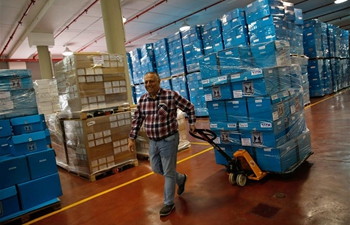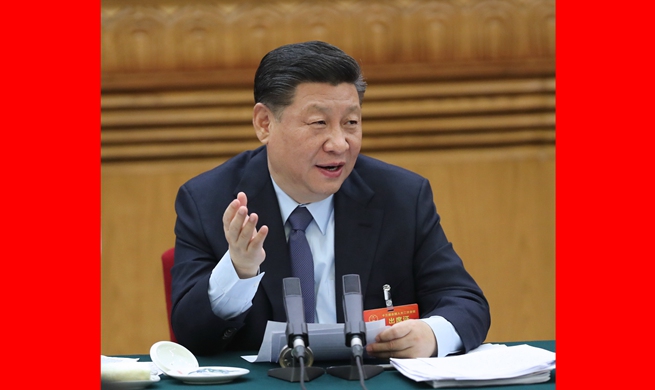SYDNEY, March 9 (Xinhua) -- Australian researchers said they have helped track an elusive cancer-promoting gene that appears to be behind aggressive breast cancers, pointing to crucial therapeutic drug treatment for the major disease.
Researchers from the University of Queensland, together with team members from the Albert Einstein College of Medicine in the United States, developed a statistical approach "to reveal many previously hard-to-find genes that contribute to cancer," according to a university statement late Friday.
"Even if a group of people all have the same type or even subtype of cancer, the molecular makeup of that cancer is different from person to person because the activity of genes vary between people," the university's Associate Professor Jess Mar said.
The team used a method to "zoom in" on genetic information from cancer patients and identify genes with two distinct "bumps" of data - low activity in one group of patients but high activity in another.
"We're acknowledging that there is diversity among cancer patients, but we're still looking for trends in the data that pertain to groups of people," Mar said.
Analyzing breast cancer data from a major cancer genome patient database, the researchers identified five genes that were "over-active" in a subset of breast cancer patients and followed up on the most promising target, known as CBX2.
"Previous studies have shown that most healthy female tissue has low levels of CBX2 activity, while an aggressive subtype of breast cancer has been shown to have high levels of CBX2 activity," Mar said.
"This suggested a possible link between CBX2 activity and breast cancer, but the nature of that link hadn't been investigated," she said.
"So we switched off the gene in a human breast cancer cell line and this slowed down the growth of those cancer cells, suggesting that CBX2 might promote tumor growth."
The latest findings were published in the British Journal of Cancer.
If further tests confirmed that CBX2 was an "oncogene," it could be a potential therapeutic drug target for aggressive types of breast cancer, Mar said.
"Identifying 'hidden' oncogenes that are unique to smaller groups of cancer patients will open up new therapeutic avenues and move us closer to personalized medicine," she said.


















